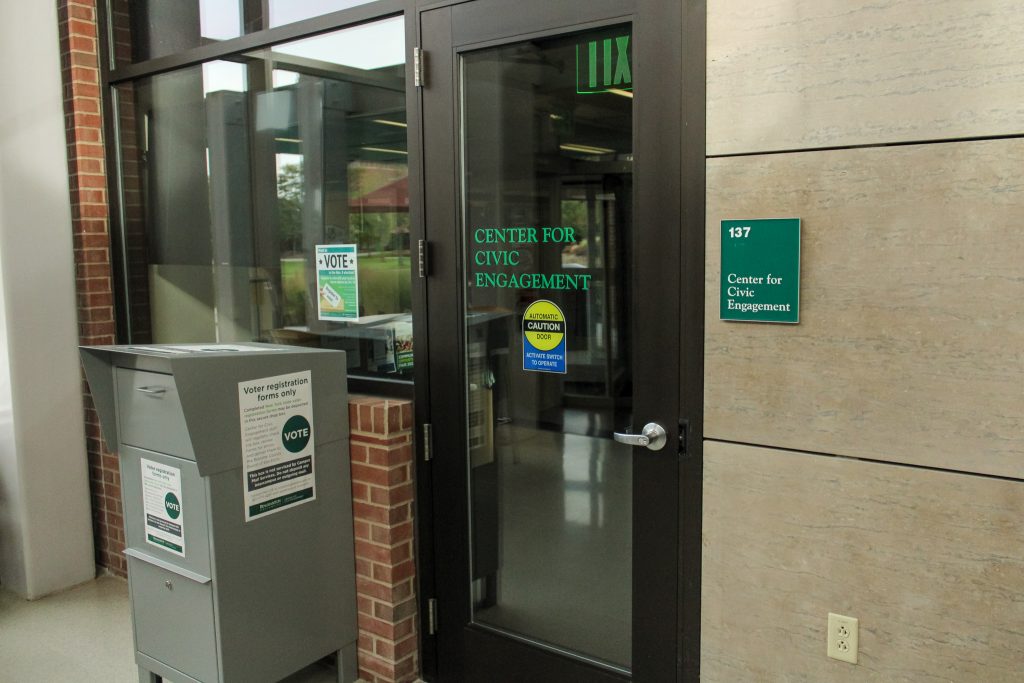The Center for Civic Engagement (CCE) is hosting the Unify America Challenge College Bowl (UACCB) to invite students to participate in collaborative political discussions.
Students attending the virtual event were encouraged to participate and have guided conversations with other students of different backgrounds or experiences. The first three events were on Sept. 27, 28 and 29, where students participated at either 5 p.m. or 8 p.m. Six more sessions will be held on Oct. 4, 5 and 6. The video conversation led participants through a survey in which they were matched with a stranger for their discussions. Students in attendance participated in conversations regarding mental health, climate change, policing, student debt and other topics. As a bonus for participating in the event, the CCE offered students an opportunity to enter to win a $25 gift card.
Unify America is a cross partisan, nonprofit organization that seeks to replace political polarization with methods of problem-solving and collaboration, according to their website. The primary goal of the nationwide challenge is to allow people to discover that we have many shared aspirations and plans for the country.
The UACCB initiative was brought to Binghamton University after the organization reached out to the CCE about college students having these political discussions. Alison Twang, Ph.D. ‘22, the interim director of the CCE, explained that after talking with Unify America, the initiative was enacted due to the alignment of their program goals with what the CCE hopes to achieve among the student body.
“The [CCE] was contacted by Unify America about participating in their program for college students,” Twang wrote in an email. “After a conversation with their staff, we felt that the initiative aligned with our goal to provide opportunities for students to engage in dialogue on important social issues.”
Twang also discussed the CCE’s goals in hosting the UACCB initiative.
“Our goal for this initiative is to provide students the opportunity to engage in conversations with people who come from different backgrounds and perspectives,” Twang wrote. “People tend to spend time with others who share similar experiences and viewpoints, and we can sometimes feel uncomfortable discussing issues with people we think we disagree with. Unify America pairs students who have different views or backgrounds and provides a structured format to discuss shared goals for our country. Many participants find that they agree on more than they disagree, and share that their conversation leaves them more hopeful about the future.”
According to the UACCB 2021 survey, 96 percent of survey respondents agreed that all Americans should have access to high-quality, affordable health care. Ninety-four percent of survey respondents agreed, along with other countries, that by legal means the United States should be a safe place for those who have fled their country as asylum seekers.
Many students agreed that it is important to have constructive conversations about politics in the classroom.
Caitlyn Yim, an undeclared freshman, said political discussions are important but need to take place in regulated spaces.
“I think having political discussions and conversation are pretty important,” Yim said. “It’s good to stay informed and talking with classmates is a good way to do that, but maybe in a space where conversation is guided and regulated so differing opinions don’t create tension between people and communities.”
Emma Leonard, an undeclared sophomore, said it is important to have political discussions and verbalize one’s stance and beliefs.
“I feel that the most effective way to grow politically is to discuss opinions with fellow students,” Leonard said. “Receiving opposing views from people with a variety of backgrounds will allow every student to make the most informed choice in their political decisions.”



